How to use smart light bulbs - 5 clever ways to elevate your home design
Knowing how to use smart light bulbs will change everything about how you use and illuminate your home
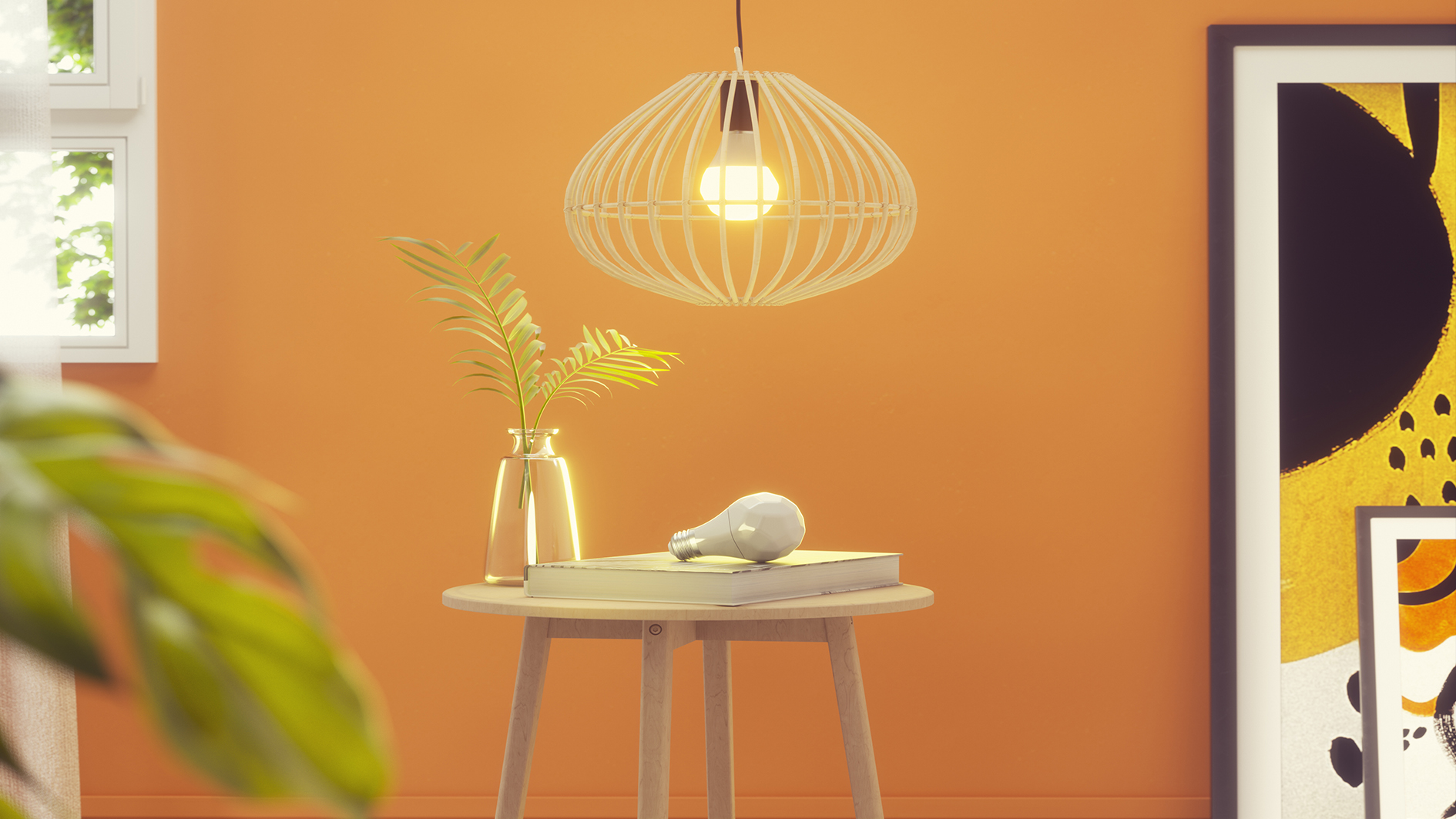

If you know how to use smart light bulbs, the way you think about your home will change. You'll realise how much can be controlled, curated, and conveniently done a at the flick of a switch. And this guide will help you make sure you get the most out of your smart light bulb investment. That means not only finding the best lighting for each room but also ways to help make your life easier.
The best smart light bulbs can be controlled from your phone, by voice assistants and even your location. All that can add up to some seriously effort-free lighting which looks great too. From varying color and brightness to warmth, these bulbs give you a lot of options to play with. And with lighting strips, outdoor lighting and side light bulbs now all available in smart forms, there is more flexibility than ever.
So what do you need to use smart light bulbs perfectly?
1. How to use smart light bulbs to automate your life
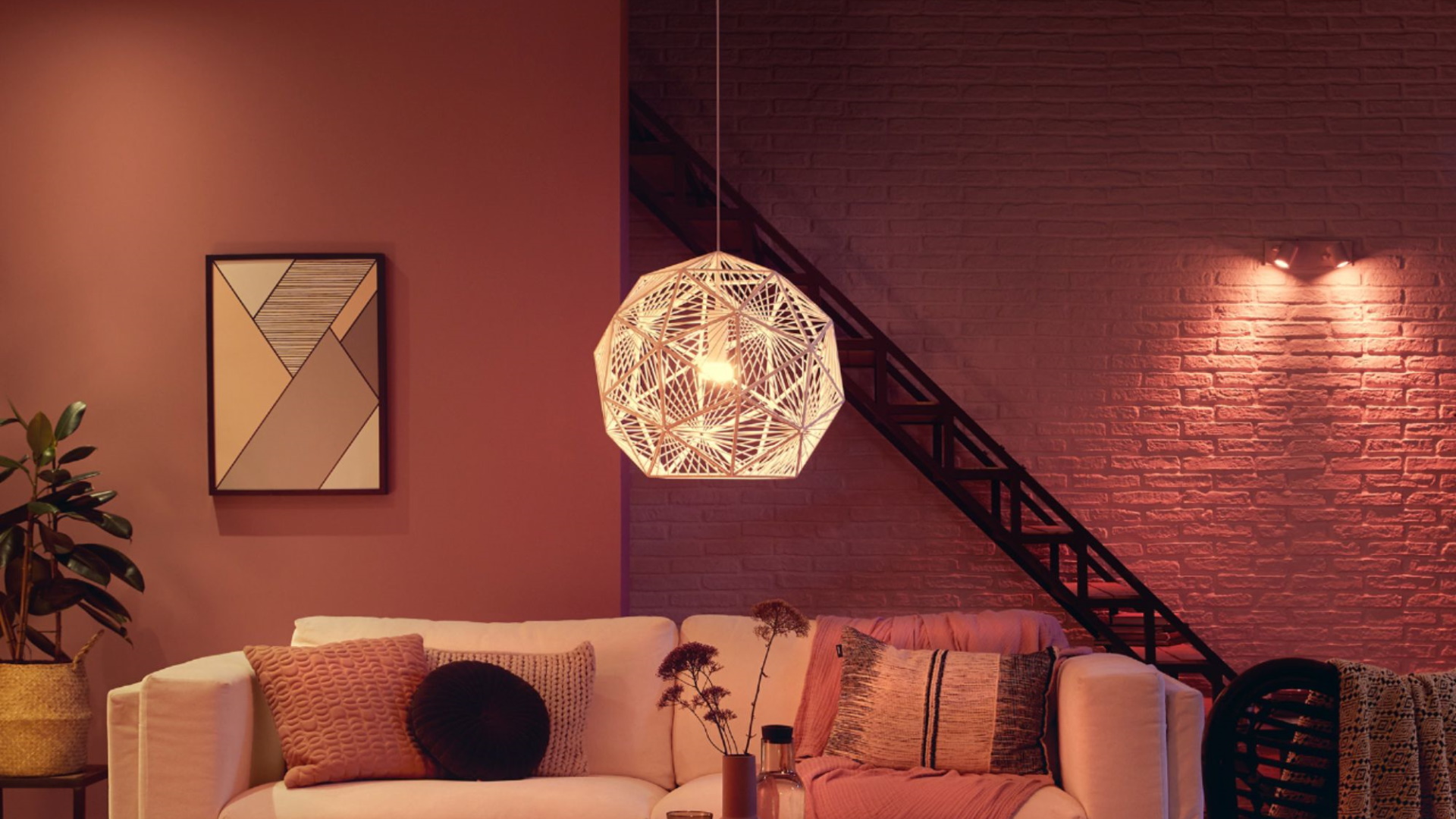
If you want an automated home you'll need smart light bulbs. Imagine entering your home to find it lit perfectly without you having to touch a thing. Many bulbs come with intelligent Circadian rhythm mimicking. That means the bulb will know the time of day and can adjust brightness, color and warmth to create the most natural light.
Or, perhaps you want to have your lights off to save power but get them all on, in the rooms you need only, when you return home. This is possible too thanks to geo-fencing which, in many smart bulb apps, you can set up easily. This will then track your location so that when it detects you enter the geo-fenced area you set – perhaps at your door or even as you device down your road – the lights will come on as you have them set.
The other, more dynamic option, is to use your smart assistant. Many smart bulbs work with the best Alexa speakers, Google Assistant and Apple HomeKit. This means you can simply tell your smart speaker to turn a light on in a certain room and it will happen. Or perhaps you can use If This Then That (IFTTT) so that when you turn on your smart speaker to play music, the lights change to suit the mood. The options with this platform are near endless.
2. Keep your home more secure
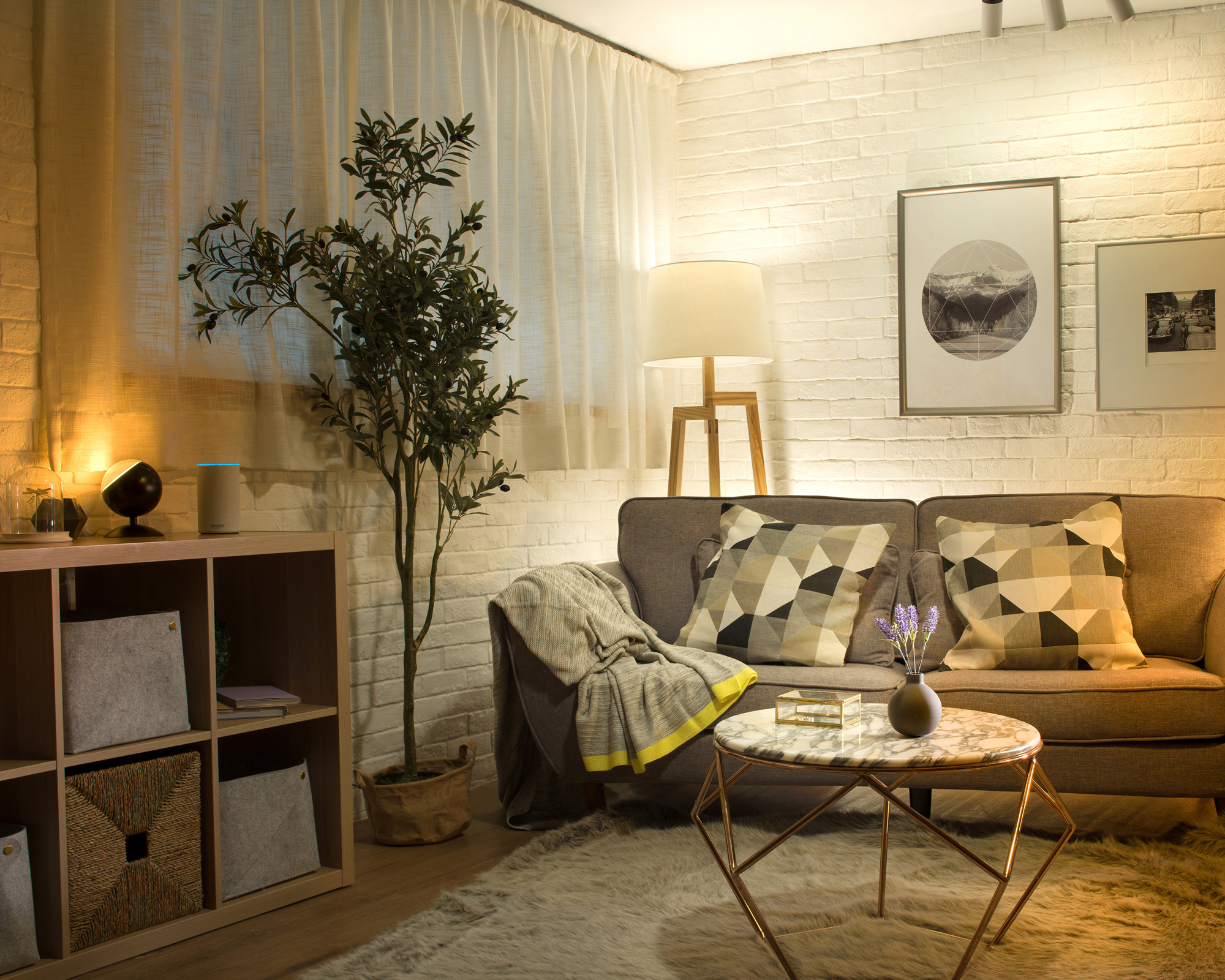
Leaving the lights on when you go out at night is a classic tip for how to make it look like you're home when you're not. But how many do you leave on and is leaving them on all night worse than turning them off as you would normally when you go to sleep? Solve all these issues using your smart light bulb app.
This will let you set timers on your bulbs so that you can have certain ones on and others off at the times you want. So perhaps you want to have your hall lights stay on until very late, only to turn off for night. Or maybe you want to keep a few side lights lit but dull them as it gets later.
The great thing about smart bulbs as uses for wifi is that you can open the app on your phone whenever and wherever you are to adjust them. Get a video doorbell alert that there is someone lurking? Fire up the lights bright so it looks like you're home and have heard them coming.
3. Use light strips to enhance your rooms
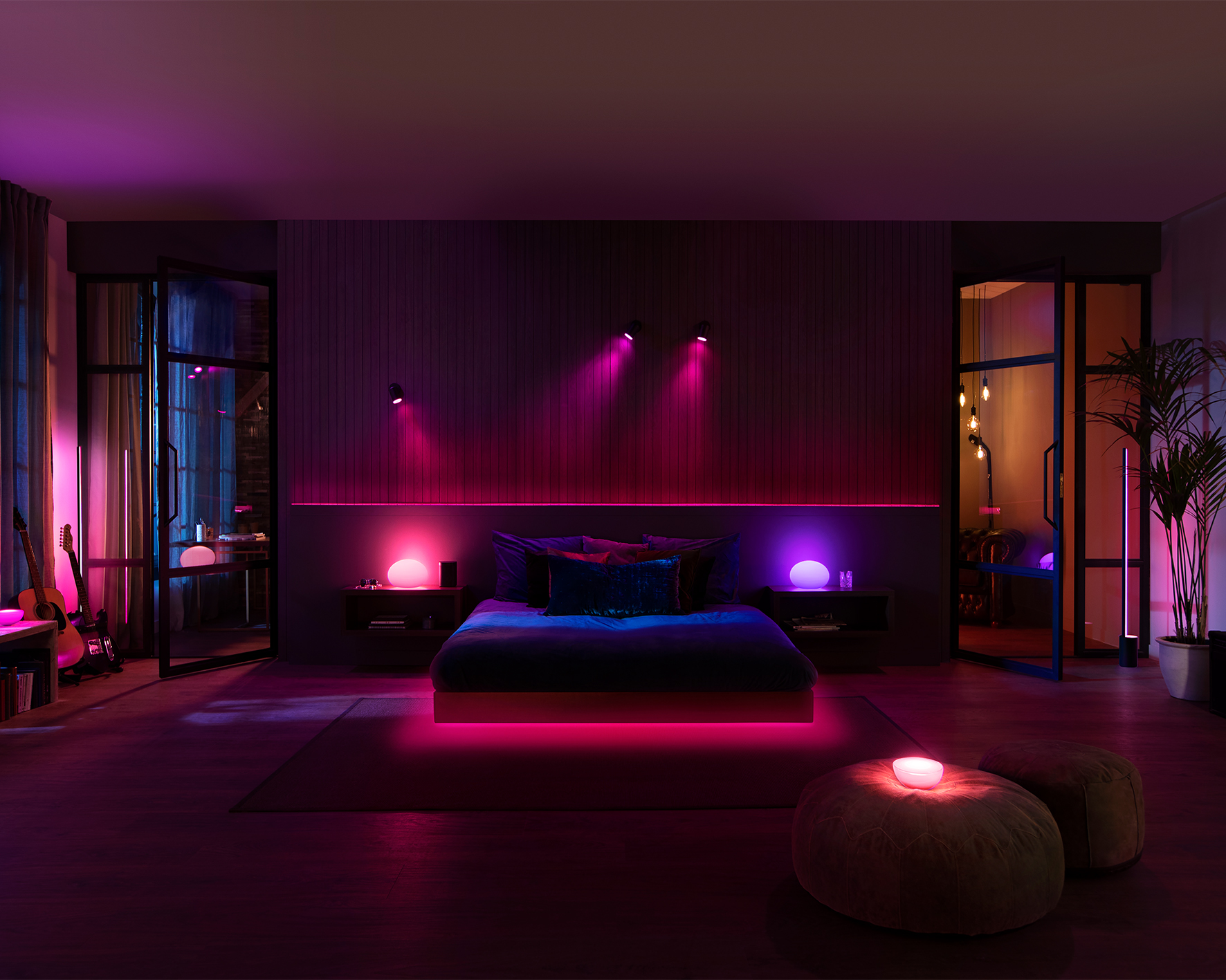
Knowing how to use smart light bulbs is a great way to upgrade your current light fixtures. But their even more energy friendly and versatile LED smart strip light brethren can offer some extra levels of stunning. If you want to add an accent to a border, say the edge of a bed, the underside of a cabinet or even the path of your hallway at night, these light are ideal. Bedroom lighting ideas have never been so smart.
Since these are strips they can be easily stuck down anywhere you want and moved just as simply. They still offer all the lighting brightness, colour and warmth controls from your device, only while using far less energy than traditional bulbs since they're LED. The uses are plentiful.
Imagine having a strip of lights hidden out of sight in the day, which run down your hallway, they can be set to come on after you go to bed, very low, so you have a perfect light to find your way to the bathroom in the small hours. Or maybe you want to setup your lounge like a cinema, with low and colourful lighting around your TV and the fireplace – that's an easy fix too.
With these types of smart lights your main limit is your imagination.
4. Reduce eye strain with smart lights
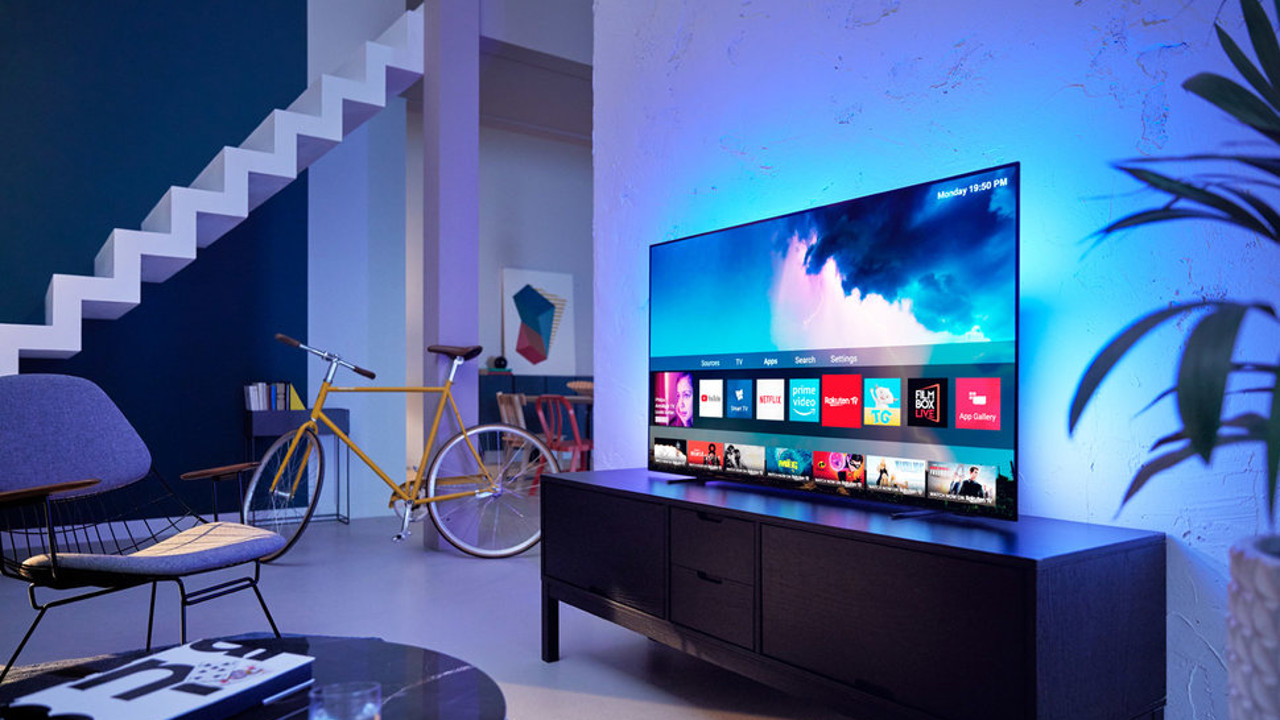
After watching TV in a dark room it can leave your eyes feeling sore. This is because of the variation between the well-lit screen and the dark room that your eyes are also adapting too. The result can be badly strained eyes that actually feel tired. Smart lighting to the rescue.
But instead of scrapping all your living room TV ideas, you can bring up the background light in the room instead. It's possible to still get that dark cinema feel to your viewing but while keeping enough light to take the strain off your eyes. It also helps when reaching for the popcorn and drinks.
You can use smart LED strips on the back of your TV to create a halo effect as the light is thrown onto the wall behind the screen. This looks fantastic and does the job of subtly lighting the room too. Smart bulbs in fixtures can be used on low settings too, but having all the light behind the TV in one place does give you a more immersive viewing experience.
Some of the best TV brands, like the Philips Ambilight in the picture above, actually have this lighting built in. These are able to change the colour to suit what's on screen for an even more immersive viewing experience.
5. Accent your art with smart light bulbs
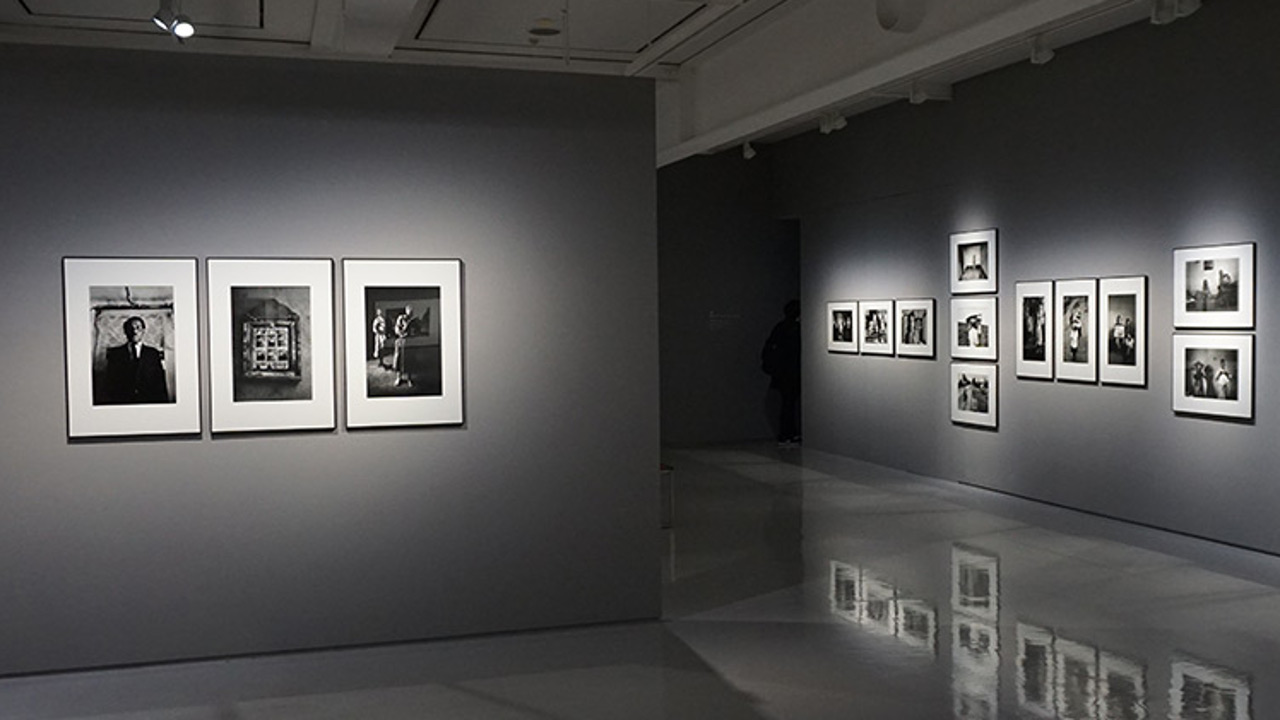
If art galleries use lighting to give accents to their artwork then why shouldn't you? Using smart bulbs near your pictures, or smart LED strips on the back of frames, it's possible to draw attention to your art in a subtle yet dynamic way.
If you've gone for smart lights with color options then you may want to have one wall all one colour or perhaps to vary the colour to suit each picture. Controlling the level of lighting in your gallery wall ideas means this can be as subtle or as punchy as you want – perhaps turning it down for a night-in but up for when entertaining guests.
Are smart light bulbs safe?
All this sticking of lighting behind potentially flammable wooden units and under beds may have you wondering just how safe they are. Thankfully the answer is that smart light bulbs are very safe. In the case of the LED strip lights these use so little power they don't even produce heat you can notice.
For the larger smart light bulbs, which are also LED, the energy drain is still low and there can be a lot of electronics in those that connect directly to WiFi. But if you're buying from a known brand then you can rest assured they've been tested and had to pass a lot of checks before making it anywhere near your home.
The only real threat that they may pose is giving a hacker another WiFi opening to get into your network. But no more than any other app or gadget that uses your home's WiFi network. And you can always get a VPN installed if you're really worried.
Can smart light bulbs be use in any fixture?
The short answer is no, smart light bulbs can't be used in any fixture. Just like any bulb you'll need to be sure you buy the correct size and fitting to suit your fixture. That can mean a bayonet bulb or a screw option and it can mean variations in size.
Another factor when looking at this is that some bulbs are larger than conventional ones, once you go up past the connection part. So be sure the lamp itself has enough room to fit the bulb size and shape that you're looking to buy.
Be The First To Know
The Livingetc newsletters are your inside source for what’s shaping interiors now - and what’s next. Discover trend forecasts, smart style ideas, and curated shopping inspiration that brings design to life. Subscribe today and stay ahead of the curve.

Luke is a veteran journalist and editor of over two decades where he has written about everything but specialises is technology, science, health and fitness, smart homes and health. He contributes to Real Homes, T3, Tom's Guide and TechRadar, among many other titles. As a father of two, any spare time he gets is enjoyed surfing, reading, hiking, camping and generally getting out in nature.
-
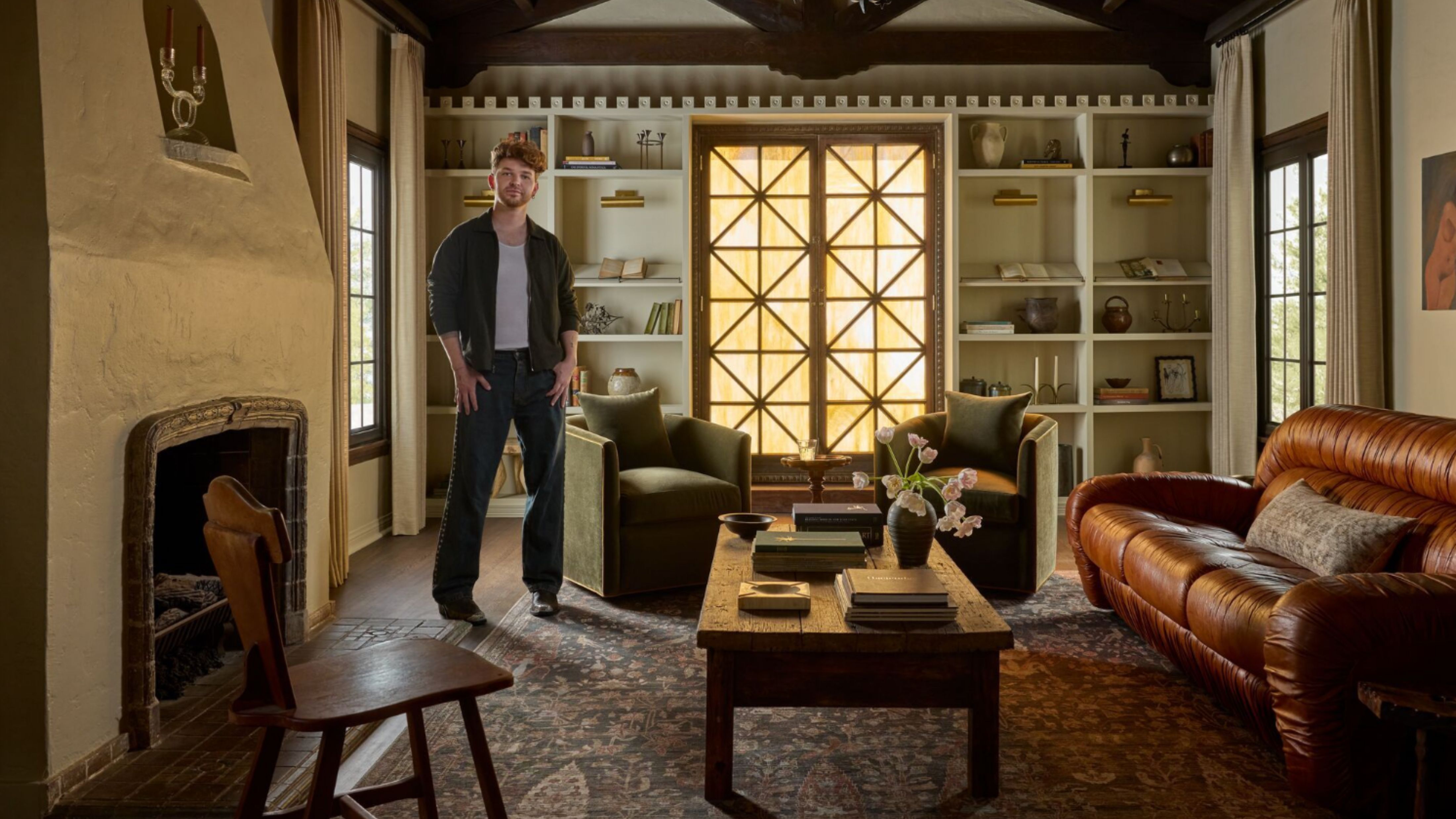 Lone Fox's Drew Michael Scott Drops a Vintage Capsule with Joon Loloi (And Some Seriously Good Tips For Thrifting Antiques)
Lone Fox's Drew Michael Scott Drops a Vintage Capsule with Joon Loloi (And Some Seriously Good Tips For Thrifting Antiques)Sourced straight from one of the world's biggest antique shows, Drew shares how to stay sane, cut through the noise, and score what you actually want
By Julia Demer Published
-
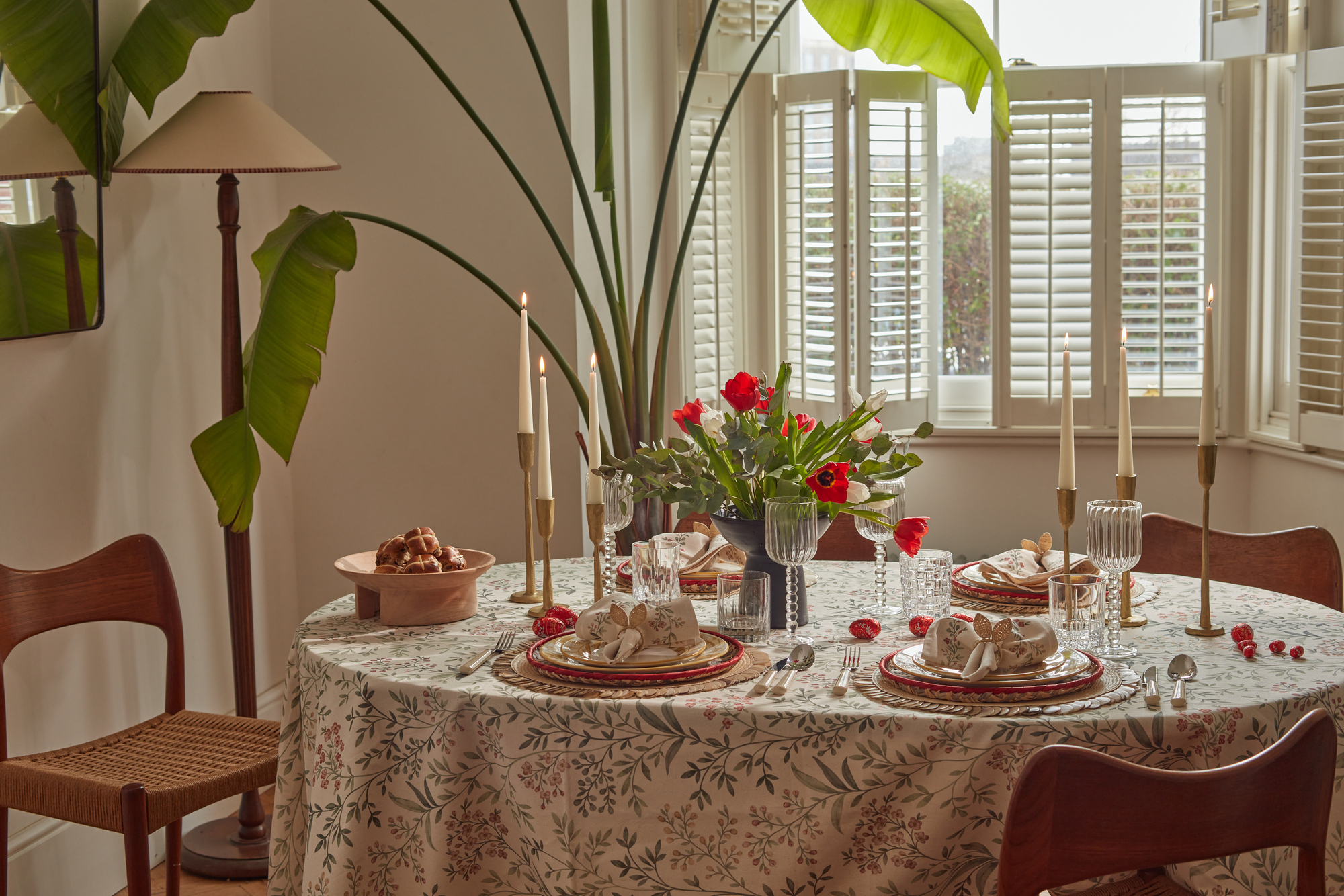 9 Easter Table Decor Ideas to Plan Now for Perfect Tablescapes This Season
9 Easter Table Decor Ideas to Plan Now for Perfect Tablescapes This SeasonFrom centerpieces and color schemes to tablecloths and seasonal themes, let these designer-approved ideas inspire your table styling this Easter
By Lilith Hudson Published